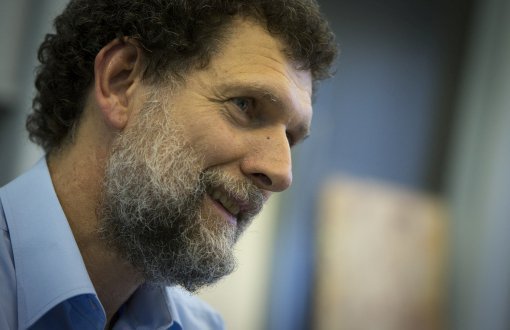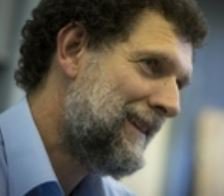Click to read the article in Turkish / Kurdish
The top court last month rejected by Kavala, who has been behind bars for over 20 months for organizing the 2013 Gezi Park protests and facing a life sentence for attempted overthrow and several other offenses.
Kavala made an application to the Constitutional Court in December 2017 on the ground that he is unjustly under arrest. After rejecting the application in May, the court has announced its justified ruling, which shows the Presiding Judge Arslan was one of the five members who opposed the verdict.
His attendance in the protests alone does not indicate he committed an offense, according to Arslan.
"First of all, it is not possible to accept the fact that the applicant participated in the Gezi incidents and supported these incidents as an indication that the applicant committed an offense as everyone can hold a gathering or a demonstration on the condition of being peaceful, can participate in these and can wish these to become widespread," Arslan said in his dissenting opinion.
The presiding judge further said that it is not the Constitutional Court's duty to approve any of the different views on the Gezi protests.
"Some define the protests as demonstrations that began with environmental consciousness and then turned into mass demonstrations in criticism of government policies, while another part of society views them as a foreign-sponsored insurrection against the government on the pretext of replaced trees [in the Gezi Park]. It is not the duty of the Constitutional Court to approve one of these views."
The Gezi Park trialIn raids conducted on November 16, 2018, Prof. Dr. Betül Tanbay, Prof. Dr. Turgut Turhanlı, Anadolu Kültür's Deputy Board Chair Yiğit Ekmekçi, Board Member Ali Hakan Altınay, General Coordinator Asena Günal, film producers Çiğdem Mater and Meltem Aslan, civil society employees Yiğit Aksakoğlu, Filiz Telek, Bora Sarı, Yusuf Cıvır, Ayşegül Güzel, Hande Özhabeş were detained. Hande Özhabeş, Prof. Dr. Turgut Tarhanlı, Asena Günal ile Bora Sarı and Meltem Aslan were released at night after testimonies. Prof. Dr. Betül Tanbay, Yiğit Ekmekçi, Hakan Altınay, Yusuf Cıvır, Ayşegül Güzel and Çiğdem Mater were released on November 17. Yiğit Aksakoğlu, who was doing civil society studies at the Bilgi University, was arrested. Anadolu Kültür Board Chair Osman Kavala was arrested without an indictment November 1, 2017, and March 4, 2019. A 657-page bill of indictment was completed on February 20 and sent to 30th Heavy Penal Court. The indictment charges all the 16 defendants with "attempting to overthrow the government of the Republic of Turkey or preventing it from performing its duties" upon the Turkish Penal Code Article 312/2. The other charges are, damage to property, qualified form of damage to property, Holding or handing over dangerous material, damaging places of worship and cemeteries, violation of the Law No. 6136 on Firearms and Knives Qualified looting (Turkish Penal Code Article 149), qualified bodily injury (Turkish Penal code Article 86), violation of the Law No. 2836 on the Conservation of Cultural and Natural Property. The 16 defendants are alleged to be the "head executives" of the Gezi Park protests are Osman Kavala, Yiğit Aksakoğlu, Ali Hakan Altınay, Mücella Yapıcı, Ayşe Pınar Alabora, Can Dündar, Çiğdem Mater, Gökçe Yılmaz, Handan Meltem Arıkan, Hanzade Hikmet Germiyanoğlu, İnanç Ekmekçi, Mehmet Ali Alabora, Mine Özerden, Can Atalay, Tayfun Kahraman, and Yiğit Ali Ekmekçi. The bill of indictment was accepted by the court on March 4. The first hearing will be held on June 24. While Osman Kavala's application to the European Court of Human Rights (ECtHR) has not been concluded, Yiğit Aksakoğlu's attorneys appealed to the Constitutional Court. |
(EMK/VK)











